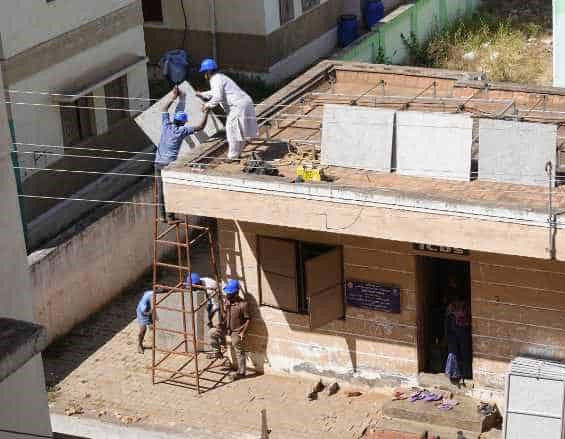India: Improving Thermal Comfort in Community Buildings in Informal Settlements

This article sheds light on the challenges faced in implementing traditional climate-friendly housing practises in informal settlements in India, particularly in the cities of Chennai and Coimbatore. Rapid urbanisation and inadequate infrastructure have resulted in substandard living conditions, especially in the context of intense heat stress, with indoor temperatures often soaring as high as 40°C. This situation disproportionately affects women, who are forced to endure sleep deprivation due to early morning chores and suffer severe health risks when exposed to prolonged heat stress, including dehydration and potential heart complications. Moreover, the absence of proper ventilation, worsened by frequent power outages during the sweltering summer months, further exacerbates the difficulties faced by residents, especially vulnerable groups such as women, infants, and the elderly.
However, the article also presents a glimmer of hope through the introduction of an innovative approach in Chennai and Coimbatore, known as the Urban Living Lab. This initiative aims to explore and implement new design solutions to enhance thermal comfort in community buildings, potentially mitigating the challenges associated with heat stress in these informal settlements. By incorporating creative design elements and leveraging contemporary techniques, this programme seeks to improve the living conditions and overall well-being of residents, particularly those most vulnerable to the adverse effects of extreme heat.
Abstract based directly on source.


Comments